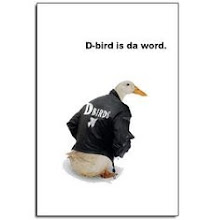Stop all the clocks, by W.H. Auden.
Teachers would probably know it from Four Weddings and a Funeral - it's the poem spoken at the funeral.
It's Valentine's Day at the end of this week, and I wanted to choose a poem about love. Not necessarily a love poem - something by Donne was suggested, or Robbie Burns (My love is like a red red rose etc) but somehow I wasn't sure that they'd connect in the way I wanted with the kids, at least at this stage of the Poem of the Week program. Some senior students, perhaps, but not necessarily the junior students.
So what to choose? This one (sometimes called Song, sometimes Funeral Blues, sometimes just printed with its first line as its title) is undubitably about love, although the sadness of love lost.
It's a truism of teaching that what may be old or familiar to us may not at all be so for the students. I remember showing Gattaca to some senior students about ten years ago - I knew it well, but to them, too young to see it on first release, it was fresh and engaging and we had a terrific discussion about nature vs nurture. So while teachers may know or half-remember this poem, it's likely to come fairly fresh to the students.
A couple of the English teachers have given some feedback already, and it's encouraging to know that the first poem found a place in class discussion and engaged the students' interest. They - the kids - wanted to know if they could suggest poems (an avenue worth exploring), and reading it has become part of the class week. Another teacher (not an English teacher) just said she liked the poem, and had cut it out of the daysheet to put it on her wall. It's all good.
In the library, I took down an old and somewhat faded poster and have freed up a long narrow horizontal wall space on which I'll put each poem, week by week (laminated). The current week's poem is framed and visible on first entering the library (I'll just change over the poem in the frame each week).
I had one of the support staff ask me to define what a poem was - not because she didn't know so much as she was interested in my version.
I said, to me, a poem is a compressed use of language, the language having to work harder than is often the case in other prose. It carries meaning, or multiple meanings. It doesn't have to rhyme, nor does it need a galloping, obvious rhythm (although well-crafted poems can have such fine, elegant structures that you don't notice at first just how fine or elegant they are, or that they may well rhyme). They can be strong or difficult, wise or foolish or funny or penetrating, plead a cause or make a case or just show us other ways of seeing. Most of all, though, it is language well-crafted, working like a practised swimmer, to whom water is a medium rather than an obstacle, so their skill shows us what is possible.
Subscribe to:
Post Comments (Atom)






















No comments:
Post a Comment